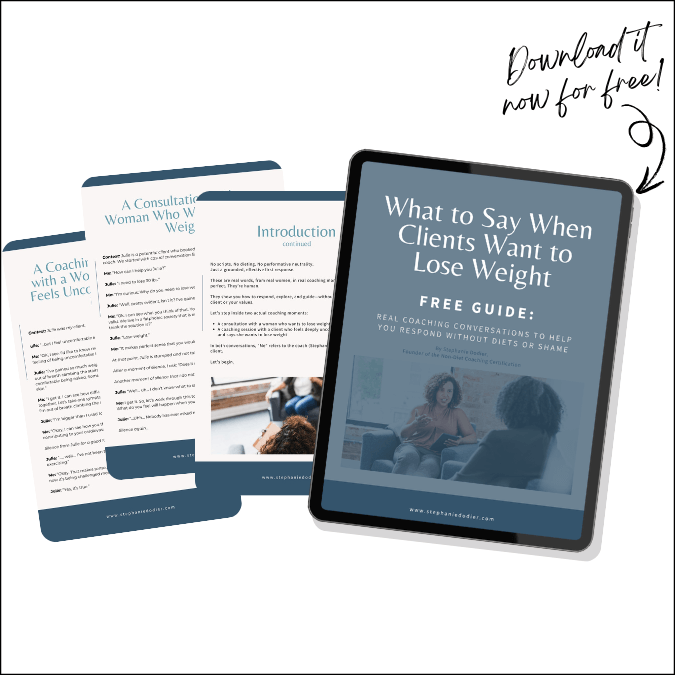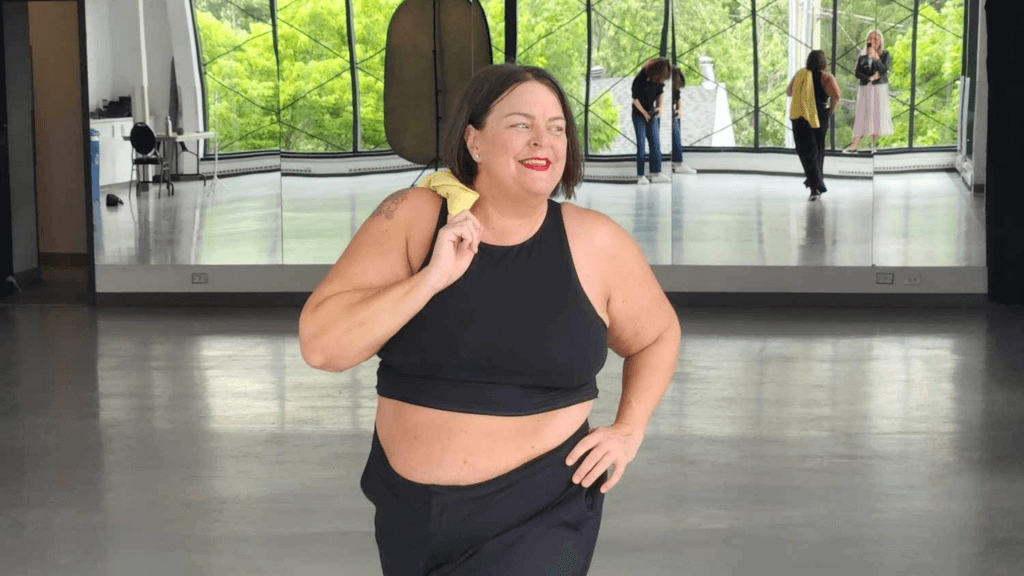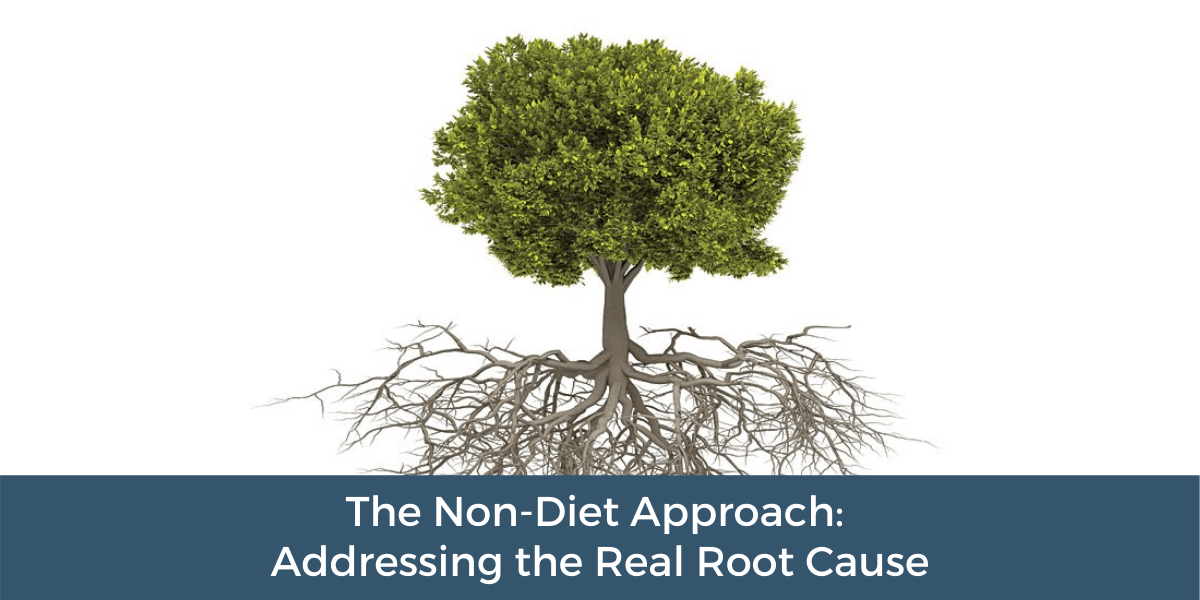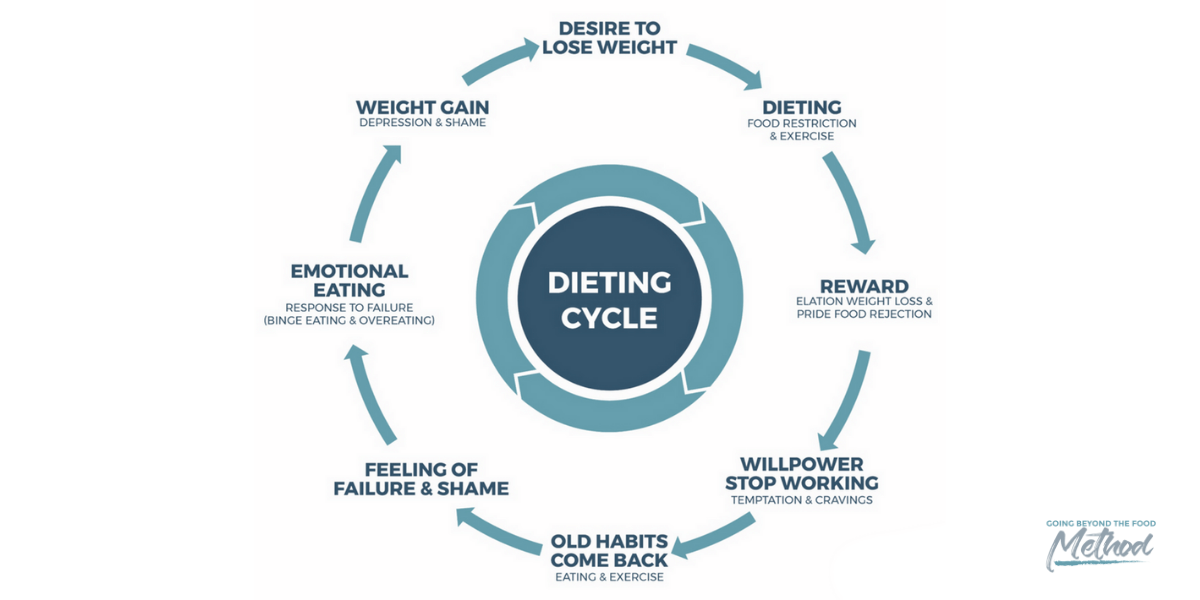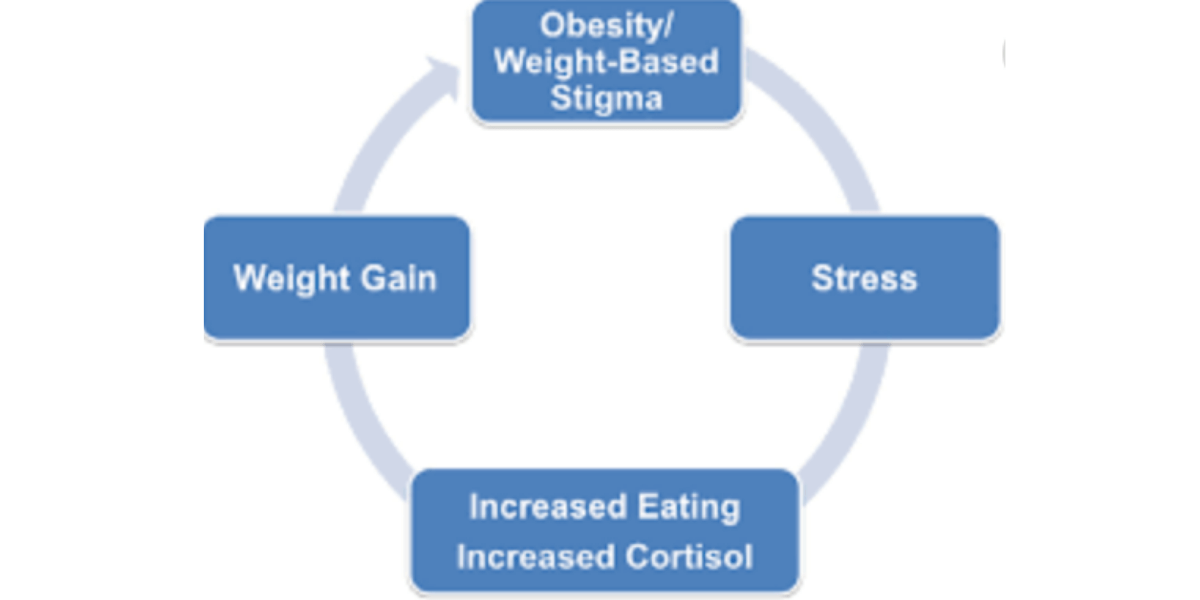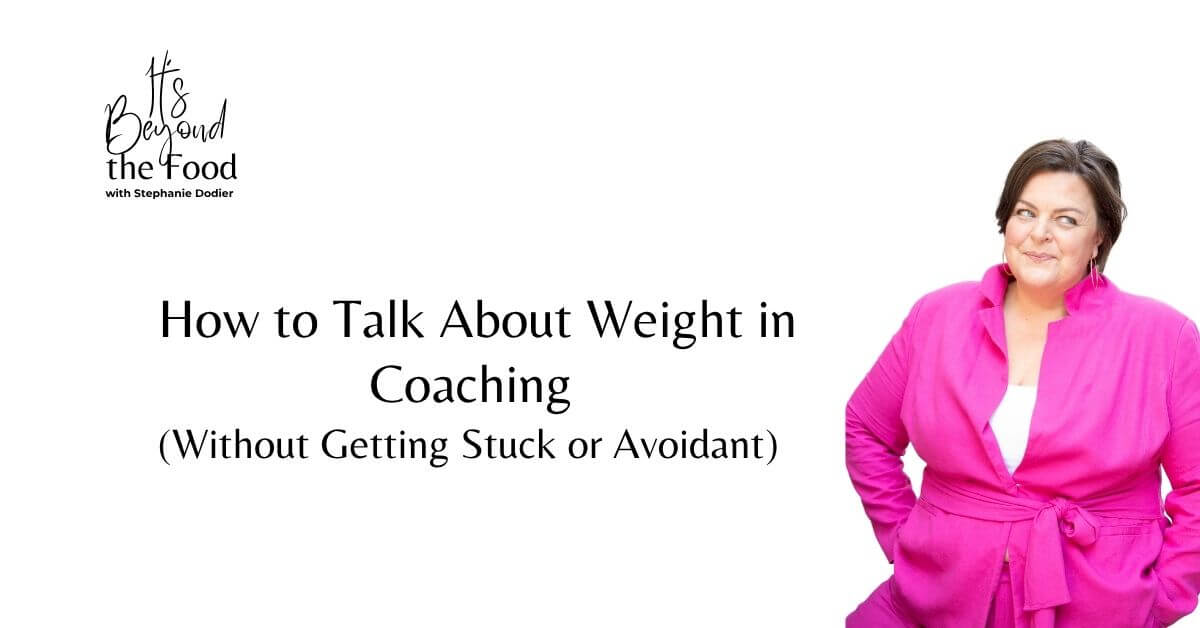

As health coaches committed to a non-diet approach, one of the most challenging conversations we face is when a client says: “But I need to lose weight.” Whether it’s during a consultation or mid-way through a coaching relationship, this statement can trigger fear, avoidance, or a rush to provide research.
Let’s reframe this moment. Instead of dreading the weight conversation in health coaching, let’s see it as an opportunity for deep, transformational work.
Why Talking About Weight Matters in Non-Diet Coaching
Many professionals freeze, intellectualize, or shut down when a client mentions weight. This reaction is normal—but not useful. We cannot guide our clients toward body acceptance and sustainable health if we can’t hold space for their real concerns.
Weight, for most clients, isn’t the problem. It’s the symbol of deeper emotional and social pain—fear of rejection, desire for belonging, or hope for improved health. Our role as coaches is not to convince them otherwise with science but to create space for their truth and gently guide them toward self-discovery.
Rather listen to the audio version of this blog? We’ve got you…
Step 1: Recognize Weight Talk as a Portal, Not a Problem
When clients express concerns about weight—be it weight loss or gain—it’s rarely about the number on the scale. Rather, it’s a surface symptom of deeper discomfort: a desire to feel safe, accepted, healthy, or less judged. The key is recognizing that weight talk is a symbol of underlying emotional, social, or physical distress. Avoiding it only reinforces shame. Instead, lean in.
Coaching isn’t about correcting beliefs with facts. It’s about exploring and unraveling them with empathy.
Step 2: Examine Your Own Relationship With Weight
Before you can effectively coach others through their body image struggles, you must unpack your own. Do weight-related comments from clients trigger discomfort, defensiveness, or judgment in you? That reaction is a cue—not a flaw. It points to areas within yourself that are still healing.
Until you can hold space for your client’s desires without attaching moral value, your nervous system will likely transmit subtle cues of discomfort. And clients are incredibly perceptive.
Step 3: Normalize, Then Get Curious
When a client says, “I need to lose weight,” your role is not to correct or convince, but to inquire. Start by normalizing their experience:
“It makes total sense that you feel this way, given what you’ve been taught about bodies and health.”
Then, dig deeper. Powerful coaching questions help clients uncover the true motives and fears driving their desire for weight change:
What does losing weight mean to you?
What do you believe will change when your body is smaller?
What makes this desire feel urgent right now?
What are you making this weight gain/loss mean about who you are?
These questions do more than gather information—they shift the client from reacting to reflecting.
Step 4: Identify the Real “Why”
As clients unpack their thoughts, patterns emerge. Most often, the weight concern isn’t about weight at all. It’s about:
Wanting to feel confident in public
Fear of rejection or not being loved
A need to avoid illness or reverse chronic symptoms
Pressure from medical providers or family
Wanting to reclaim energy and vitality
Weight becomes a scapegoat for these fears, because diet culture has conditioned us to believe it is the root of all suffering—and that changing our body is the solution.
Step 5: Lead with Compassion, Not Correction
Once the deeper drivers are revealed, mirror them back. Not as a rebuttal, but as recognition:
“If I’m hearing you correctly, it sounds like the desire to lose weight is really about wanting to feel in control of your health and avoid judgment from others.”
This is your opening to gently introduce new perspectives—around health at every size, intuitive eating, and body neutrality—without invalidating the client’s lived experience. This isn’t about preaching. It’s about offering an alternative lens.
Step 6: Explore the Pattern, Not Just the Problem
Rather than trying to change the client’s mind, guide them through examining past attempts:
When was the last time you successfully lost weight?
How did you do it?
Did it last?
Did you enjoy the process?
This helps clients see their own patterns and gently question whether weight loss is truly the solution—or just a familiar cycle with predictable disappointment.
From here, you can offer a radical alternative:
“What if you could feel more confident, energized, and in control—without having to change your body?”
This reclaims the conversation and offers clients a sense of possibility they may not have considered.
Embracing the Discomfort to Facilitate Change
The weight conversation in health coaching is not a detour—it’s the work. Holding space for clients’ weight concerns with empathy, curiosity, and skill allows for true transformation. When clients feel seen and heard—not shamed or dismissed—they’re far more open to shifting perspective. If you’d like to see how I facilitate this conversation, I created this guide: What To Say When Clients Want to Lose Weight.
This framework doesn’t eliminate discomfort. But it equips coaches to move through it with grace, purpose, and confidence. In doing so, we not only support our clients’ healing—we deepen our own.
Need Help with Weight Conversation in Health Coaching?
You can access all of our services on our work with us page. We have a number of programs and service levels enabling us to serve most women:
Free Resources and Masterclasses: Get started and get to know us better!
Private coaching with Stephanie and her team Stephanie and her team of Certified Non-Diet Coaches are waiting to support you in a one-to-one setting with an individualized plan.
Non-Diet Coaching Certification for professionals ready to integrate the Going Beyond The Food Method™️ in their practice and for women wanting to become Certified Coach and build a business coaching other women beyond the food.


